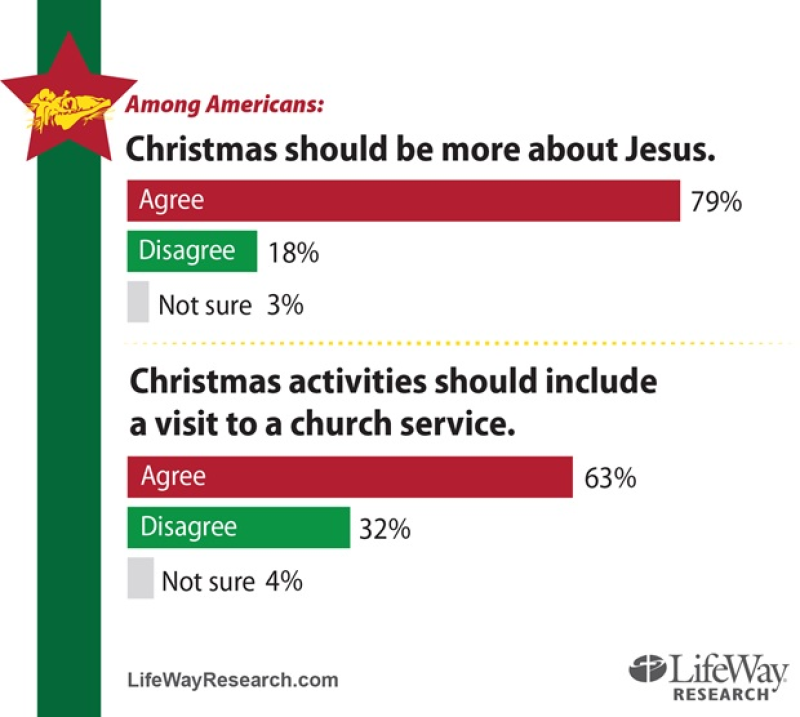

Though it may seem that the ways Americans are celebrating Christmas are drifting farther away from the holiday's religious roots, a recent study by LifeWay Research found that most Americans prefer to keep the holiday religious.
LifeWay's research, conducted via phone surveys to 1,000 random Americans, found that 63 percent agreed that "Christmas should include a trip to church." 79 percent agreed with the statement: "Christmas should be more about Jesus." 70 percent said that "Christmas would be a better experience if it had a more Christian focus."
86 percent of Americans say that "children in public schools should be allowed to sing religious Christmas songs in school-sponsored musicals." Even a majority of those who do not have any religious affiliations and those from other faiths agreed. 73 percent of "nones" and 71 percent of those from other faiths agreed that children should be allowed to sing religious Christmas songs at schools.
However, despite the fact that a majority of the survey participants prefer to keep Christmas more religiously rooted, most also say that saying "Happy Holidays" or "X-mas" as opposed to "Merry Christmas" is not offensive. 29 percent of the participants agreed that "it is offensive when people say Happy Holidays instead of Merry Christmas," while 69 percent disagreed. 39 percent agreed that using X-mas instead of Christmas was offensive, and 55 percent disagreed.
Younger participants were more likely to lean away from saying that Christmas should be more religious. 38 percent of younger participants from the ages of 18 to 24 agreed that Christmas should include church activity, and 46 percent said "Christmas would be better if it had a more Christian focus." Younger participants were also less likely to be offended by the usage of X-mas instead of Christmas. 18 percent of participants from 18 to 24 said that using X-mas was offensive.
LifeWay conducted the study between September 26 to October 5, 2014, and used Random Digit Dialing to call 1,000 random Americans. Read the entire research here.


















